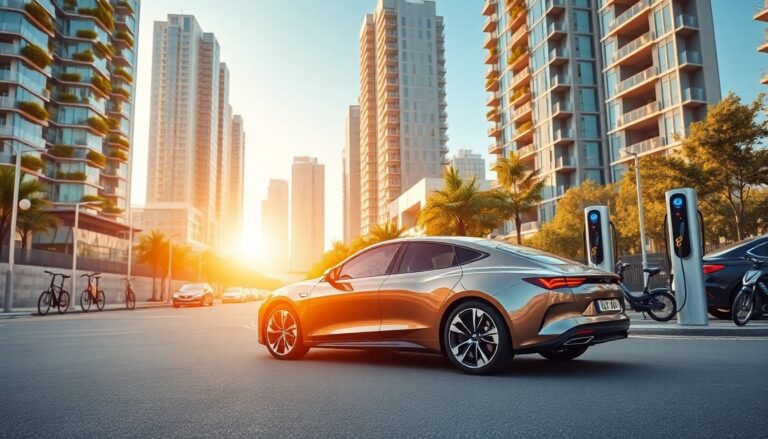Argomenti trattati
The automotive industry has long been a cornerstone of technological advancement. Today, a transformative era is unfolding, driven by innovations in electric vehicles (EVs), autonomous driving, and connected car technologies. These developments are reshaping how we drive and significantly impacting our daily lives, economies, and the environment.
The rise of electric vehicles
As concerns about climate change and air quality become more pressing, the transition to electric vehicles is accelerating. Major automakers are investing billions to develop EVs that meet regulatory standards and satisfy consumer demand for sustainable transportation. Electric vehicles offer the advantage of producing zero tailpipe emissions, making them essential in the battle against pollution.
Infrastructure development
To accommodate the increasing number of electric vehicles on the roads, substantial investments in charging infrastructure are essential. Both public and private sectors are working together to install more charging stations. This initiative not only makes owning an electric vehicle more convenient but also enhances consumer confidence. Addressing the issue of range anxiety is critical for many potential EV owners.
Battery technology advancements
Another significant contributor to the growth of electric vehicles is the rapid progress in battery technology. Innovations, such as solid-state batteries, promise to improve energy density, reduce charging times, and prolong the lifespan of EV batteries. As these technologies develop, they will lower costs and increase the accessibility of electric vehicles, paving the way for widespread adoption.
The evolution of autonomous driving
Autonomous driving technology marks a significant advancement in the automotive industry. Leading companies such as Tesla, Waymo, and established automakers are developing systems capable of operating vehicles with minimal human input. This innovation has the potential to transform transportation by enhancing road safety and alleviating traffic congestion.
Safety and regulatory challenges
Despite the considerable advantages, the adoption of autonomous vehicles faces several obstacles. Safety remains a critical issue, as public trust in these technologies is contingent upon their ability to perform reliably across diverse conditions. Additionally, regulatory frameworks must adapt to tackle liability concerns and guarantee that autonomous vehicles adhere to stringent safety standards.
Impact on urban planning
The widespread adoption of autonomous vehicles could transform urban planning significantly. Cities may need to redesign their infrastructure to accommodate self-driving cars. This transition could lead to reduced parking requirements and adjustments in public transportation systems. Such changes might foster more pedestrian-friendly environments, encouraging healthier lifestyles and strengthening community engagement.
The interconnected world of smart vehicles
The emergence of connected car technologies represents another dimension of the automotive revolution. Vehicles equipped with Internet of Things (IoT) capabilities can communicate with one another and with surrounding infrastructure. This connectivity provides real-time data that can enhance the driving experience and improve safety.
Data privacy concerns
As vehicles become increasingly connected, data privacy and security have come to the forefront. Automakers must ensure that the data collected from vehicles is used responsibly. Consumers need to be informed about how their information is shared and protected. This necessitates transparent policies and robust cybersecurity measures to establish trust with consumers.
Economic implications
The integration of smart technologies into vehicles presents significant economic implications. New business models are emerging, such as mobility-as-a-service (MaaS), which could reshape consumer perceptions of vehicle ownership. Instead of owning a car, individuals may opt for subscription services that provide access to vehicles as needed. This shift alters traditional automotive sales dynamics.
The future of the automotive industry extends beyond the introduction of new vehicles. It encompasses a profound transformation in our understanding of transportation. Innovations in electric vehicles, autonomous driving, and connected technologies are set to foster a more sustainable, efficient, and interconnected society. As this landscape evolves, it is essential to examine the potential effects of these advancements on our environment, economy, and everyday lives.

